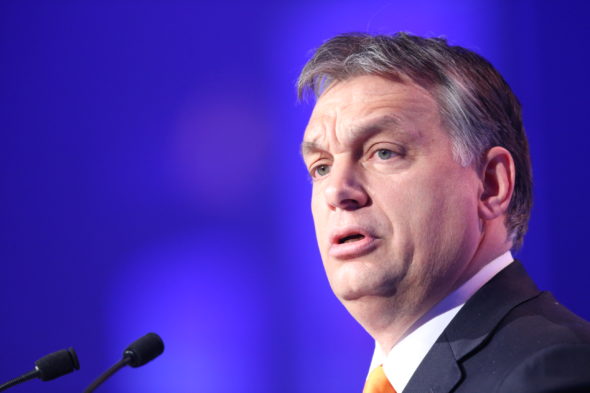Another unexpected turn of events at the finishing line of the negotiations on the EU embargo on Russian oil reveals Victor Orban’s true intentions. He wants to cash in on selling Russian fuels at the expense of Poland and the entire EU – writes Wojciech Jakóbik, editor in chief at BiznesAlert.pl.
At the end of the 1st of June, everything seemed to be done and dusted. The EU embargo on oil imposed in response to Russia’s attack on Ukraine was to enter into force by the end of the year. It wasn’t completely tight, because the goal was to convince Hungry to sign it. In the beginning Hungarians argued they were not able to physically import oil from outside Russia, a claim completely demolished by data published by BiznesAlert.pl, as well as, unofficially by the Polish Ministry of Climate, of which Minster Anna Moskwa informed in an interview. Later on, Hungarians fought and won to exclude the Druzhba oil pipeline from the sanctions list, while Poland and Germany voluntarily agreed to give up this route, as they had previously declared they wanted to abandon oil from Russia by the end of the year.
However, it turned out this wasn’t enough. Hungary did another 180, this time during the negotiations between EU ambassadors, and wanted to extend the transition period during which they would be able to reexport oil products from Russia, from six months to three years. They put the cherry on top when they demanded that Patriarch Kirill, the head of the Russian Orthodox Church accused of cooperating with the Kremlin, be exempt from the sanctions. The first person to report about it was Beata Płomecka from the Polish Radio, and it wasn’t the first time she was faster than the world’s biggest news agencies.
This means Orban would like to trade Russian oil products, such as gasoline on gas stations across Europe, where other market players that abide by the embargo will withdraw. He would like MOL petrol stations to cash in at the expense of other players, such as PKN Orlen. This is either a fight for a narrowly-understood profit of one company, or an element of cooperation with Vladimir Putin, which may have been evidenced also by Hungary blocking its sky for NATO weapons transport to Ukraine and other concessions to the Kremlin. This is how Russia may use the Hungarian Trojan horse to torpedo initiatives, which, as Putin said „weaken Russia”.
The embargo on 90 percent of oil imports from Russia would deal a significant blow to Russia’s budget, 2/3 of which hinges on the sale of hydrocarbons. This would be especially true if Saudi Arabia together with other OPEC+ members increased supply. The first signs that this could happen have emerged in the Financial Times and may herald a new opening in the Middle East. Oil cooperation with Gulf states would be back on the table at the expense of Russia, which is being ousted from the market due to sanctions, and which is limiting oil production even before the embargo, as it has difficulties with putting oil on the market. An EU and UK ban on insuring its tankers, which is being discussed in the backdrop of the talks about the embargo, will only make things harder. Considering all this, Budapest’s actions should be seen as detrimental to both the West and Warsaw.
This is an obvious conclusion that should impact the cooperation with Hungary in the energy and foreign policies. MOL taking over a portion of Polish gas stations as part of the Orlen-Lotos merger, would not be problematic if it wasn’t for the fact that Putin’s Trojan horse is the head of Hungary and nobody knows what else is up in his sleeve. It is likely that MOL would like to sell Poland Russian fuel despite the embargo, and despite the fact it can make deals with Orlen. Nevertheless, Hungary as a partner in energy policy is becoming a growing problem for Poland’s eastern policy. The talks on the EU embargo are to be continued. If Hungarians want to keep on cashing in on their relations with Russia at the expense of Ukraine and the entire EU, they should not be rewarded with contracts in Poland.









